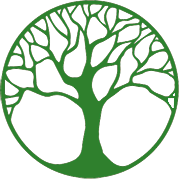Ten Controversial Topics in Philosophy (Draft/Speculative) - by John Smithin
- Log in to post comments
Ten Controversial Topics in Philosophy
(Modified from Mortimer J. Adler’s Ten Philosophical Mistakes)
1. Being, Essence & Existence
Cf. the arguments in Gilson’s Being & Some Philosophers.
The ancients Parmenides, Plato and (to some extent) Aristotle seemed actually to make a distinction between Being & Existence. Ideas, Forms and so on are what is ‘really real’. They have being but not necessarily existence. Aristotle is Janus-faced – he was certainly interested in concrete reality - unlike Plato - but how do his Forms & Substance really differ from Ideas? In effect, they make actual existence – things which are discrete entities, and individual, somehow less real and less important than the abstract notions of the philosophers. They are made ‘non-entities’. But this is US! – this is real life.
Another way of putting it is that Essence comes before Existence.
For Aquinas & Gilson this is not so – coming into Being is an ‘act’. Essence and Existence are inseparable. Change and development are OK, the individual entities matter. Things come into being - and then pass away and don’t exist anymore – no problem.
The individuals and species are related by concepts and the use of the intellect. NOT by the ‘One’ or ‘Universals’, or ‘Forms’, etc. etc.
Modern & Post Modern Philosophy backslides from this. The old kinds of notions of Ideas & Essences, and so on, remain influential. Cf. Kant’s idea of the ‘Noumenon’.
Existentialism gets everything backwards? Now we have existence but no essence. Hence each individual has to define ones own essence. It is a big effort, but open-ended. Everything seems meaningless. There is ‘Nausea’ and so forth. Essence comes after Existence.
2. The Importance of Metaphysics
Modern & Post Modern Philosophy try to do away with Metaphysics. But this is impossible – makes philosophy redundant.
Metaphysics and Epistemology are different types of knowledge. Do not proceed in the same way.
The importance of the AXIOMS. What do we actually mean by axioms – go into details.
Hume’s ‘only two types of knowledge’ is wrong. There is a third and that is metaphysics. Hume does not understand the point or see its importance? There is more than just Deduction versus Induction.
3. Consciousness & Its Objects
Here we follow Adler’s chapter 1.
4. The Intellect & The Senses
Adler’s chapter 2.
5. Words & Meanings
Adler’s chapter 3. This deals with the blind alley of 20th century ‘linguistic analysis’, which deals only with second-order problems.
6. The Critique of Knowledge
Descartes, Hume, Kant. Knowledge & Opinion. Is ‘Critical Realism’ an oxymoron?
Deal here with Social Ontology. Ontological & Epistemological Objectivity & Subjectivity.
7. Free Will versus Determinism
Adler’s chapter 7.
8. Ethics & Moral Values
Adler’s chapter 5, and the material in Virtue Ethics and the Fall of Virtue Ethics.
9. Human Nature & Human Flourishing
More on human flourishing & virtue ethics.
10. Human Society & Politics
Adler’s chapter 9, and the material on Politics.
